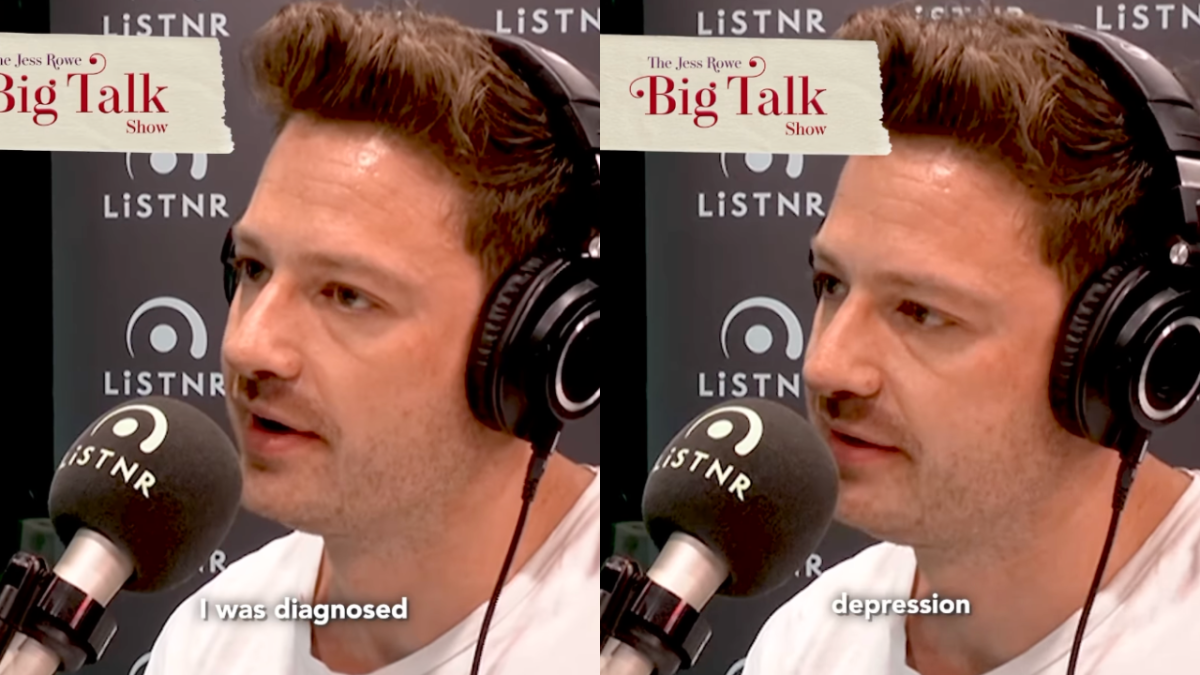
Matt Agnew has opened up about his mental health and the moment he attempted to take his own life in a raw, heartbreaking interview.
The 35-year-old astrophysicist and former Bachelor shared his story on Jessica Rowe‘s podcast, The Jess Rowe Big Talk Show, where he revealed his mental health journey began as a child.
“I first started seeing a psychologist when I was 12 years old,” he said.
“I was struggling with quite bad anxiety as a child — so much so that I missed a lot of school. Just kind of inconsolable before going to school in the mornings, hyperventilating … I was throwing up a lot of the mornings.”
Agnew said his mental health worsened just over a decade ago when he was diagnosed with clinical depression, and he was prescribed antidepressants.
He then revealed he made a suicide attempt several years ago.
“[Things] got bad a few years ago in 2021 where I tried to end my life,” he said.
“I ended up in hospital; I don’t remember the experience much. I remember actively making a decision to end it and doing some particular actions to do that, and I woke up in hospital.
“I was discharged and five weeks later I had the plans in place for a second attempt and was stopped by friends. This was during COVID and my mum flew into lockdown — she was in WA, I was in Sydney.
“I was kind of just inconsolable and ended up being admitted as an inpatient for three weeks at a mental health hospital.”
Agnew said he sought further psychiatric care in 2021 and received an adjusted diagnosis of bipolar II, generalised anxiety disorder and emotional dysregulation — a diagnosis he refers to as his “salad of mental illness”.
“I’ve been on a cocktail of medication to cope with that,” he said.
Since he tried to take his own life, Agnew said he has struggled with fluctuations in mood, which have seen him engage in self-destructive behaviours.
“I’ve had several more stumbles and falls quite deep into the hole,” he said.
“I have been quite destructive to myself. I’ve had moments where I’ve certainly self harmed. I don’t think I’ve actively tried to end my life like I did in ’21, but I have done things where I think that was a potential outcome and I didn’t care. That was as recent as last year.”
Agnew also shared how difficult his mental health journey can be, both physically and financially.
“I get frustrated sometimes because it just feels like so much effort and work,” he said.
“Financially, [it’s] very expensive for me and I imagine thousands of Australians to exist.
“For me to have a baseline that isn’t dangerous is so much work.”
He said he’s in a “good spot” at the moment and has a strong support network in family and friends, as well as a medical team which consists of a psychologist, psychiatrist and two GPs.
With his family living in WA, Melbourne-based Agnew said his friends have “definitely” saved him when he has experienced troughs.
“My friends will rapidly deploy and assemble as soon as something is wrong,” he said.
“They’ve definitely saved me. I’ve told them but I don’t know if they know sometimes how much they have.”
I can’t tell you how much I cried listening to Matt Agnew speak so openly and rawly about his mental health journey. It was incredibly powerful stuff.
Not only is it profoundly difficult to talk about from a personal perspective, but there’s so much stigma which bars men from discussing their mental health and seeking help.
Nearly one in ten — or 2.2 million — Australians reported in the census that they had been diagnosed with a mental health condition, of which 600,000 were aged 20-34. Of that figure, about 400,000 were women and 200,000 were men.
Despite the gender disparity, statistics show men are more likely to die by suicide than women. According to data from the Australian Bureau of Statistics, 3,144 people took their lives in 2021 — 75 per cent of whom were male.
We need to eradicate the barriers which prevent men from seeking mental health treatment. No one should ever feel judged for admitting they need support.
Ultimately, having hard, frank conversations like the one Agnew and Roe shared — who approached the discussion with such empathy, kindness and sensitivity, let it be known — is essential to destigmatising mental health.
I’d hazard a guess that Matt Agnew’s bravery has helped myriad people and provided them with strength and hope.
If you need mental health support, please call Lifeline on 13 11 14 or chat online.
Under 25? You can reach Kids Helpline at 1800 55 1800 or chat online.
You can also reach the Suicide Call Back Service on 1300 659 467 or chat online.
If you require immediate assistance, please call 000.







